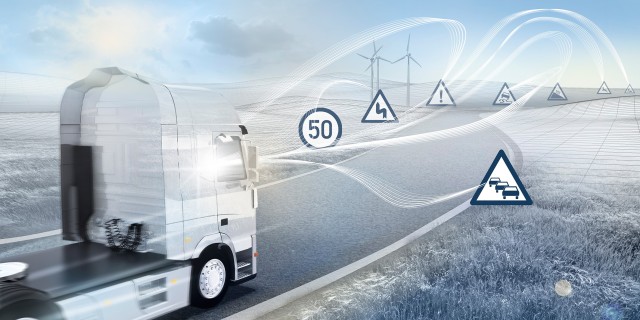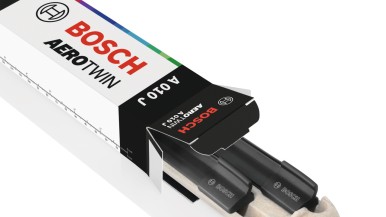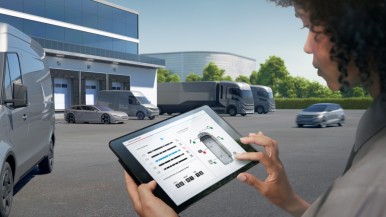Hannover – With sales growth of more than 10 percent, Bosch’s commercial-vehicles business is making a major contribution to growth in the company’s Automotive Technology business sector. Overall, Bosch’s automotive business is set to register growth of 7 to 8 percent in 2014. In the cur-rent year, the company will generate one-quarter of its automotive technology sales with equipment for trucks, vans, and buses. “Bosch’s commercial-vehicle growth is in the fast lane,” said Wolf-Henning Scheider, member of the board of management of Robert Bosch GmbH and spokes-person for the Automotive Group, at the 2014 IAA Commercial Vehicles in Hannover. Diesel technology continues to be the main driver of growth. In this regard, Bosch is benefiting from ever stricter emissions standards for trucks and buses, as well as for off-highway vehicles such as tractors and construction machinery.
Emissions standards boost global sales of diesel systems
China4 is one current example of such standards. As a result of this new emissions standard, electronically controlled high-pressure injection systems and exhaust-gas treatment will be mandatory for new commercial vehicles. Bosch is benefiting from this. The company has sold twice as many common-rail systems as in 2013. Consequently, this year will see the opening of a second Bosch manufacturing site for commercial-vehicle technology in China.
But China is not the only country in which exacting standards are boosting sales figures: worldwide, nearly a million Denoxtronic exhaust-gas treatment systems for trucks and buses will be delivered this year.
Web-enabled trucks: operating efficiency is top priority
Particularly in Europe and the U.S., Bosch is focusing on connectivity in commercial vehicles alongside diesel technology. “We expect that by as early as 2016, every new commercial vehicle in Europe and the U.S. will be web-enabled,” said Wolf-Henning Scheider. Bosch is already the European market leader for truck and bus infotainment systems. Bosch is also using this connectivity to enhance commercial vehicles’ fuel economy. One example of this is Eco.Logic Motion – a system that uses a navigation data-based electronic horizon to calculate an efficient driving strategy. To achieve this, Bosch connects the powertrain and the transmission with the navigation system. This alone results in average fuel savings of 5 percent – according to measurements made by Bosch customers, the saving can even reach 9 percent. In the future, Bosch will also be connecting the engine management and transmission control systems with web-based real-time data. This will allow the commercial vehicle’s powertrain to adapt not only to the topography and geometry of the road network, but also to speed limits and road works. To quote Scheider, the result is an optimization “based on live information.”
Bosch Automotive Technology - close to the customer worldwide
In order to be able to supply customers in China, Europe, and the United States, Bosch relies on local partnerships and local manufacturing. Outside Germany, the company has manufacturing operations for commercial-vehicle diesel systems in the U.S., Brazil, China, the Czech Republic, Japan, and India. The expansion of global competence in the automotive sector is also reflected in headcount: by the beginning of 2015, Bosch Automotive Technology will employ a good 193,000 associates, almost 13,000 more than at the start of 2014. This increase will mainly take place in Asia. In addition, the Automotive Technology business sector will see its research and development workforce grow from almost 35,000 to more than 37,000 associates.





